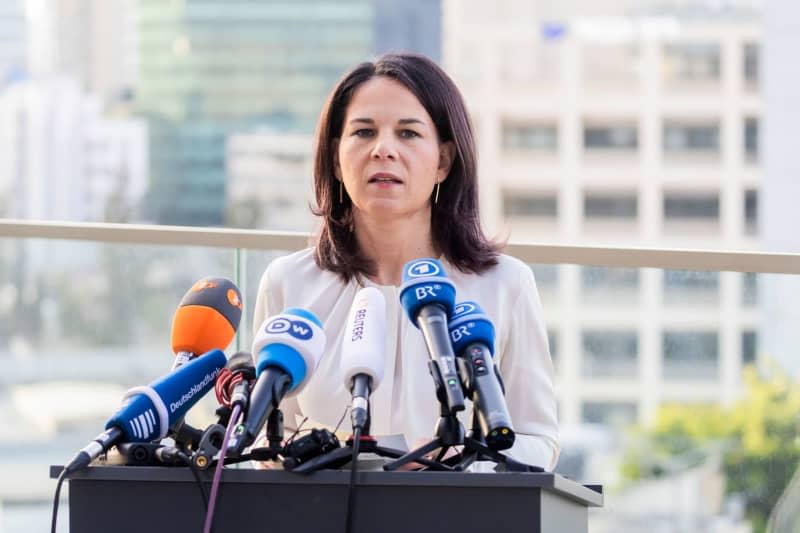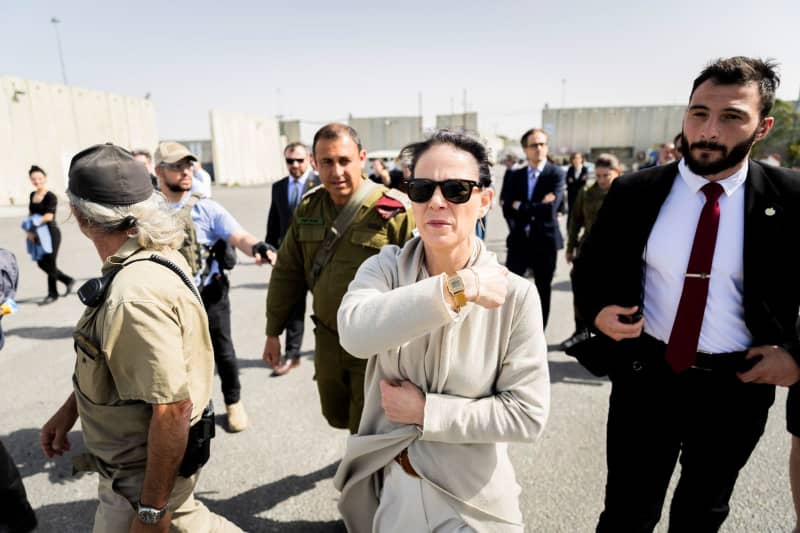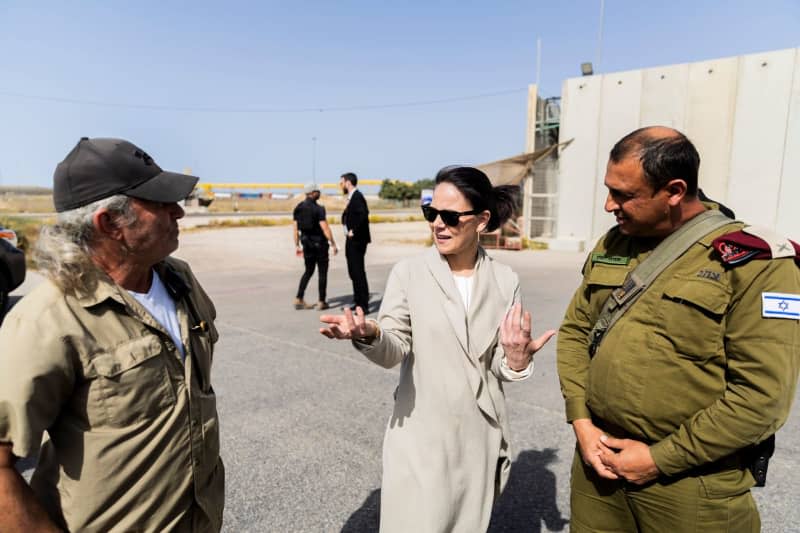Germany's Baerbock visits Gaza border as aid deliveries falter

German Foreign Minister Annalena Baerbock has personally inspected the situation at the Kerem Shalom border crossing in southern Israel in view of the low levels of aid supplies reaching the civilian population in the Gaza Strip.
Baerbock was informed by the director of the facility about how lorries loaded with relief supplies, including food and medicine, are processed at a huge check-in area, which is divided by high concrete walls.
Afterwards, the German minister called for speeding up the clearance of deliveries in view of the faltering aid deliveries. "In light of the suffering in Gaza, we can no longer afford to discuss where exactly the bottleneck is and who is to blame," she said after the visit to Kerem Shalom in Tel Aviv.
She was told by both the Egyptian and Israeli side "that the bottleneck is above all the reloading between lorries, where some are reloaded three times, inspected three times," Baerbock said.
"We need a way to stop doing this triple reloading."
Baerbock said she would work to ensure that a Jordanian concept, in which small numbers of lorries drive directly into Gaza and are no longer reloaded at the border, is massively expanded. Germany will "pull out all the stops to ensure that this happens in the next few days."
Until now, lorries coming from Egypt or Jordan have had to be reloaded onto Palestinian lorries before entering Gaza and transported onwards by Palestinian drivers.
The humanitarian situation in Gaza is disastrous as Palestinians in the sealed-off coastal area lack basic necessities such as food, water and medicine. The United Nations has warned of an imminent famine, with around 1.1 million people in the densely populated Gaza Strip in a desperate situation.
The Kerem Shalom border crossing is located in the immediate vicinity of the Egyptian border. It was closed after the terrorist attack by Palestinian extremist organization Hamas on Israel on October 7 and reopened for humanitarian aid deliveries on December 17.
Due to protests by families of victims and radical Israeli settlers who wanted to prevent aid deliveries, the area around the border crossing was declared a restricted military area at the end of January.
An average of 120 lorries with relief supplies are processed every day. Before October 7, around 500 lorry loads reached the Gaza Strip daily, more than 300 of them via Kerem Shalom.
The lorries were carrying relief supplies from the World Food Programme (WFP), the World Health Organization (WHO) and the children's aid organization Save the Children.
Baerbock and her delegation were the first foreign guests at ministerial level to be allowed access to Kerem Shalom by the Israeli authorities after October 7.
Earlier on Tuesday, Baerbock met her counterpart Israel Katz in Jerusalem.
The meeting between the two foreign ministers took place behind closed doors and likely focused on the UN resolution calling for an immediate ceasefire in Gaza, more aid for the suffering Palestinian civilian population and the demands for a two-state solution.
In view of those sensitive issues, the greeting between the two politicians seemed professional and not very cordial. There was the usual handshake and a smile for the cameras. Baerbock and Katz barely made eye contact.
The meeting came shortly after the UN Security Council passed a resolution calling for a ceasefire in Gaza for the first time.
On Monday evening, Baerbock had expressly praised the Palestinian Authority (PA) for its contribution to the UN resolution following a meeting with Palestinian President Mahmoud Abbas.
The German minister praised the president and the PA for clearly condemning the violence of the October 7 attacks led by Hamas. This stance had been "an important contribution" to the UN Security Council's decision to pass a resolution calling for a ceasefire in Gaza for the first time, she said.
The most powerful body of the United Nations was able to pass a resolution on Monday calling for an "immediate ceasefire" in the Gaza war for the Muslim holy month of Ramadan as well as the release of all Israeli hostages, after the US, Israel's biggest ally, decided not to use its veto power.
The resolution was long overdue, Baerbock said. The demands for the release of all hostages in Gaza and for more aid for the civilian Palestinian population were also important, she said.
The number of Palestinians killed in Israeli attacks has surpassed 32,000, with many more thousands injured, according to the Palestinian Health Ministry. The actual number of dead is likely to be much higher.



